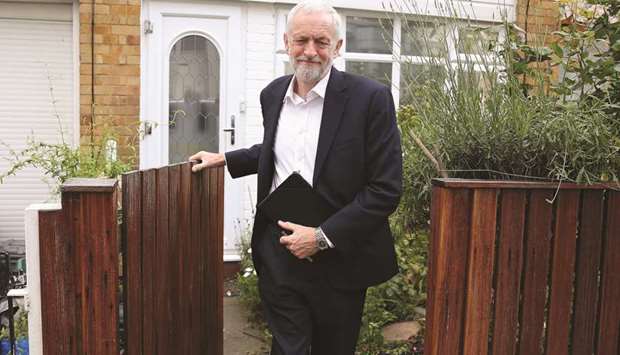Nigel Farage’s fledgling political party is at high risk of receiving and accepting illegal donations, a watchdog has concluded.
The Electoral Commission visited the headquarters of the Brexit party in May and studied the way in which the party takes gifts through online payment systems including PayPal.
A report released yesterday has concluded that the “fundraising structure adopted by the party leaves it open to a high and ongoing risk of receiving and accepting impermissible donations”.
The party could face penalties unless it overhauls its fundraising system to ensure all donations above £500 come from the UK, as the law requires.
The commission’s director of regulation, Louise Edwards, said it was legitimate for any political party or campaigner to adopt a fundraising strategy that focused on raising small sums through online payment systems.
“Our visit to the Brexit party has enabled us to make specific recommendations to the party that will support it to meet its legal responsibilities when it comes to receiving funds,” she said. “Should it fail to meet those responsibilities, this will be considered in line with our enforcement policy.”
Donations of £500 or above must be made by a “permissible donor” under UK law – someone who is listed on the electoral register or a company registered in the country which is “carrying on business”. Parties have 30 days to return donations if they are unsure of their origin.
The Brexit party said donations of £25 or less accounted for 90% of its total funding during the European election campaign. It raised more than £2mn from small donors, thousands of whom paid £25 each to become registered supporters.
Amounts below that do not have to be declared, but some critics – among them the former PM Gordon Brown – have said there is no way of telling whether those smaller amounts come from British or foreign sources, and that the system may be being abused.
Brown suggested the party was getting round the declaration rules by accepting many untraceable donations directly through PayPal.
The commission said parties had a legal duty to check every payment they obtained online to ascertain the source of the donation and not to accept any that they were not entitled to. They should request as much information as possible to ensure all money was from a permissible source, it said.
Asked about the issue during the campaign, Farage said the party’s website “says very clearly, do not donate unless you are on the electoral roll or eligible to vote”.
Labour and the Conservative also have the option to donate via PayPal on their websites.

Labour party leader Jeremy Corbyn leaves his house in north London yesterday.
